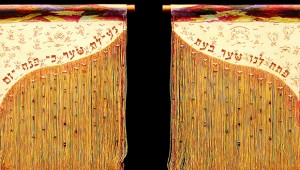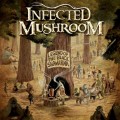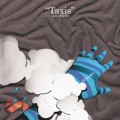Arts and Culture
Unweavings
My Unweavings® fiber art pieces convey narratives through form, color, texture, and calligraphy. The words within each piece and the unwoven form that suggests these words serve as a visual midrash, evoking the poetry of various Biblical texts. The unwoven spaces form symbolic shapes – wings, prayer shawls, veils, falling waters, and the sacred architecture of windows, domes, and gates.
Ready to Explode
Can Jews do terrible things to other human beings given what they have endured, given what Jews continue to carry in their collective memory? According to the late S. Yizhar, the answer is yes. David Brusin reviews the first English translation of Yizhar’s legendary 1949 novella, Khirbet Khizeh.
Just a Shot Away: The Fortieth Anniversary of Gimme Shelter
Gimme Shelter bears witness to a world in which there’s no longer any place to hide. Although the film shows us The Rolling Stones at the height of their powers, the ultimate lesson it imparts is that charismatic leadership shrinks to human size before those who refuse to look the other way.
The Tale of an Olive Tree
Benjamin Tammuz (1919-1989) was one of Israel’s most well-known writers, artists, and critics. “The Tale of an Olive Tree” reveals Tammuz’s famed gift for satire. Though first published in 1950, this story sounds remarkably contemporary and demonstrates that even the founders of Israeli culture were able to make pointed indictments of their society’s shortcomings. – Adam Rovner, Hebrew translations editor
Temple Talismans
Amulets were traditionally made to be worn or placed in locations to promote healing, protect against evil & to bring good luck. Kabbalists made extensive use of amulets. Ancient talismanic images such as the hamsa, the fish, and the all-seeing eye inform Verwer’s series Temple Talismans.
Zeek Reviews City of Borders; Director Yun Suh Responds
City of Borders is a thoughtful attempt at explaining the importance of queer politics in helping resolve the Arab-Israeli conflict. According to Zeek film editor Shai Ginsburg, unfortunately the documentary lapses into an oversimplified appreciation of queerness, failing to recognize the complexities it has to contend with when boundaries are going up, quite literally, everywhere.
Departure Without a Destination? Infected Mushroom's The Legend of the Black Shawarma
Israeli expatriate duo Infected Mushroom move further from their roots in dance music, creating a fusion of speed metal and speedy electronica that is more cohesive than compelling.
File Under 'Eurabia'
Few genres undermine the ‘world beat’ tag better than 1970s Turkish psychedelia. Middle Eastern and European, ethnic and electric, four decades on, its noisy contours continue to confound Ibiza expectations of Bedouin- programmed drum machines. Milan/Seattle duo Elders of Zion offer up a forty minute mix of their favorite tracks, with a special nod to Istanbul’s 3 Hürel.
Rainbow Rivera
Piyyut-Spec featuring footage captured by Eliyyahu Enriquez on the Lower East Side, NYC {swapping music by Liao Sha and Ye Mao, A Bright Sunny Day in Autumn}:
Production History: Zoos of Berlin's Labor of Love
Zoos of Berlin’s new album finds a silver lining in the dark skies of Detroit’s precipitous industrial decline, turning a former auto parts facility into a staging ground for polished, eclectic pop. With nods to Motown, garage rock and electronica, this self-released record is a stirring aural palimpsest that testifies to the maturation of do-it-yourself culture.
Statelessness
What is the condition of statelessness? Dan Alter and Arisa White respond with statements on statelessness and two poems each: Sestina: Studying Torah and Jerusalem, Walking on the Moon by Alter, and It is Evidence and Along Telegraph by White. Both will be reading Saturday November 14 in San Francisco at the Jewish Theatre
el es frida kahlo
In el es frida kahlo Maya Escobar confronts the ambivalence she experiences as a result of her simultaneous obsession with Frida Kahlo and weariness towards her commodification.
Minority Tongue: Hebrew Literature in the United States
Modern Hebrew literature did not begin in Israel. In the 19th century, a new secular Hebrew literature arose in Eastern Europe and then the United States. Here, Hollander reviews a new book by Stephen Katz, who argues that this literature was a minority tongue, more at home with African-American gospel than old-time tefillah.
Skipping A Beat: The Coen Brothers' A Serious Man
What do you do when all the truths you took for granted turn out to be lies? Larry Gopnick, the protagonist of A Serious Man, the Coen Brothers’ latest film, falls through the looking glass into an alternate reality far scarier than Alice’s famous Wonderland. Too old to be turned on by the first flowerings of the Summer of Love and too young to remember a Jewish identity not shadowed by the Holocaust, he struggles to find his bearings in a disenchanted world suddenly reanimated by the promise of hidden meaning.
Spurensuche
Munster born photographer Julian Voloj returns to his homeland exploring his heritage, as a Jew and as a German, while documenting the final traces of a once rich culture.
The Enemy is Us: Rachel Shabi
If you haven’t read We Look Like the Enemy, you’re sorely missing out. The definitive journalistic study of Israel’s Mizrahi community, Rachel Shabi’s groundbreaking book has been an event in its own right since its initial publication in the UK at the end of last year. An impassioned plea for recognition of Jewish Israel as a multicultural society, Women’s Lens editor Aimée Kligman provides an equally inspired reading of the volume.
![[the current issue of ZEEK]](../../../image/2/100/0/5/uploads/leftistethicistgraphic-52842c6a.png)
- 5000 Pages of Zeek
- Founded in 2001, Zeek was the first Jewish online magazine, and we have over 5000 pages online to prove it, all available free of charge. Read more in the Archive.















